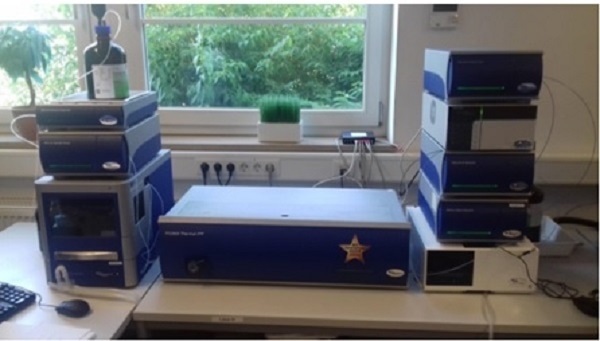At the recent International Symposium on GPC/SEC and Related Techniques in Amsterdam, Postnova Analytics presented a well-received lecture entitled 'Comprehensive Characterization of Natural Rubber Samples using Thermal Field-Flow-Fractionation coupled with MALS and Triple Detection'.

The presentation by Dr Gerhard Heinzmann included an informative introduction to the Thermal Field Flow Fractionation (TF3) technique, a comparison of the technique versus using GPC/SEC and application examples including data from a complex natural rubber sample.
The speaker explained how advantageously TF3 is able to separate samples by both particle size and chemical composition at the same time. Further he showed how unlike traditional GPC/SEC separation, TF3 offers huge flexibility in choice of fractionation power and avoids interactions with stationery phase, degradation due to shear stress and the need for sample filtration. Also beneficially the TF3 technique has no size exclusion limit and therefore even ultra-high molecular weight, branched and cross-linked natural and synthetic rubbers can be separated using the methodology.
In conclusion the lecture showed how thermal field flow fractionation coupled with MALS and triple detection provides a highly efficient method of separating and characterising complex, high molecular weight natural or synthetic rubbers at high resolution in organic and aqueous solvents.